47+ Sample Producer Agreement
-
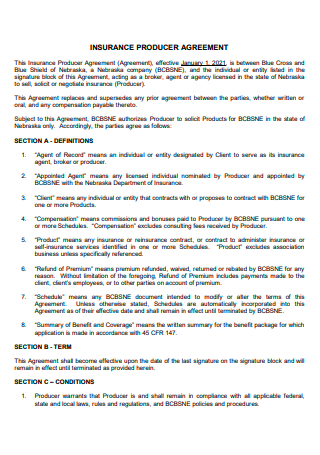
Insurance Producer Agreement
download now -
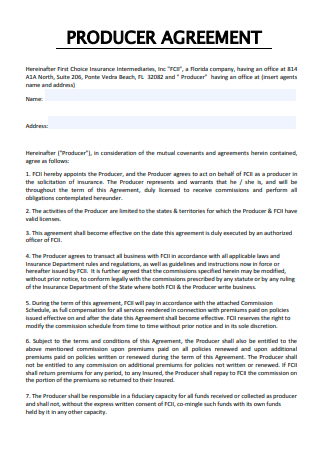
Basic Producer Agreement
download now -
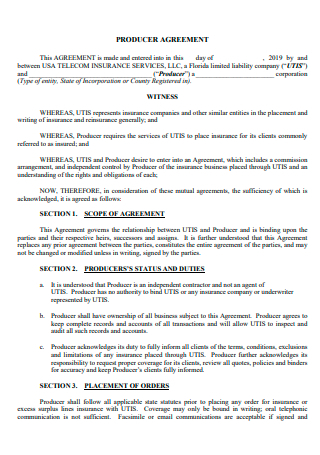
Producer Agreement Template
download now -
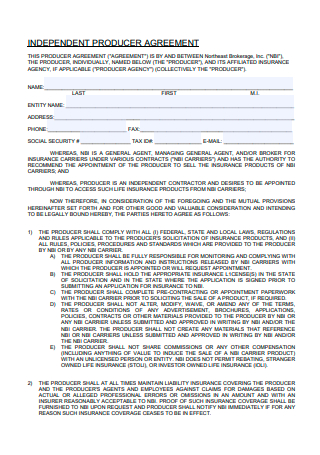
Independent Producer Agreement
download now -
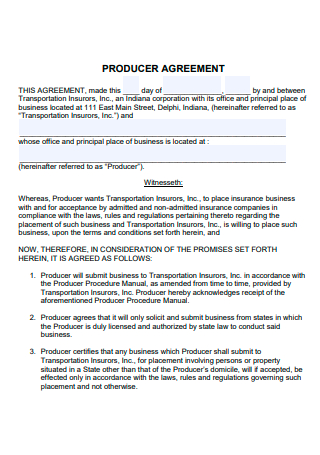
Formal Producer Agreement
download now -
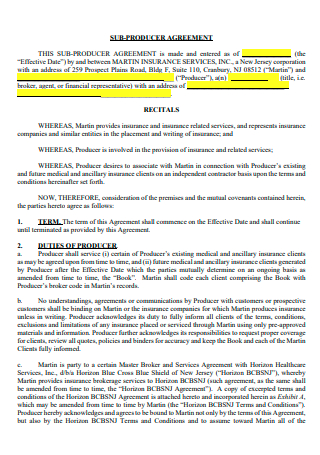
Sub-Producer Agreement
download now -
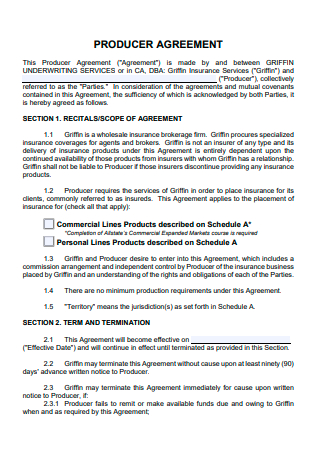
Producer Agreement Example
download now -
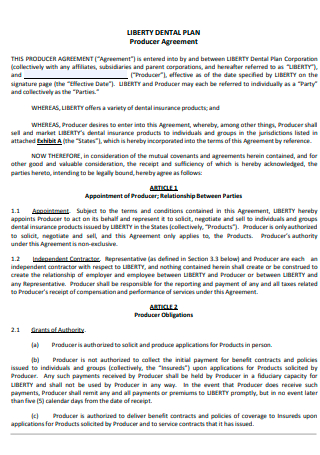
Liberty Dental Plan Producer Agreement
download now -
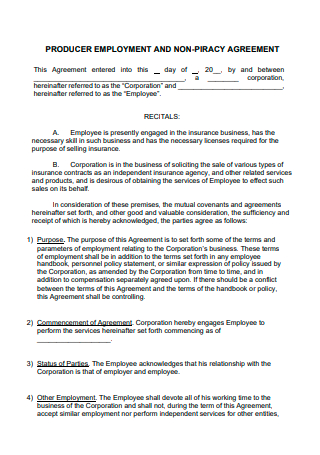
Producer Employment Agreement
download now -
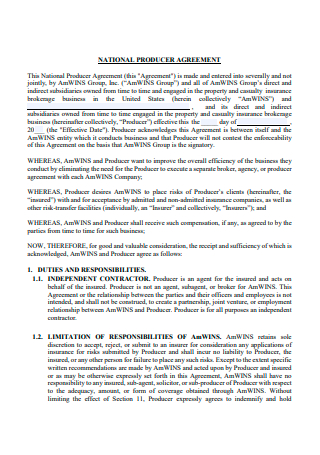
National Producer Agreement
download now -
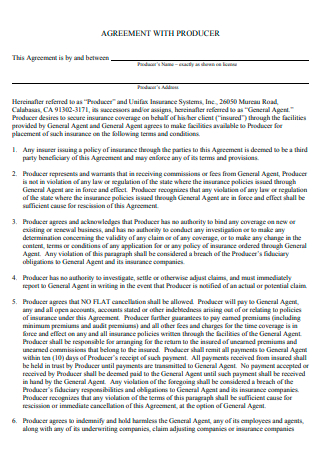
Simple Producer Agreement
download now -
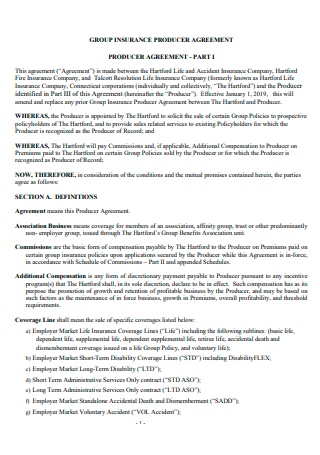
Group Insurance Producer Agreement
download now -
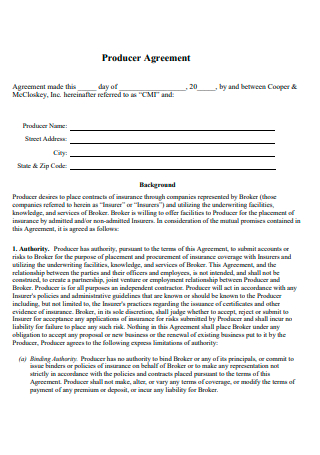
Standard Producer Agreement
download now -
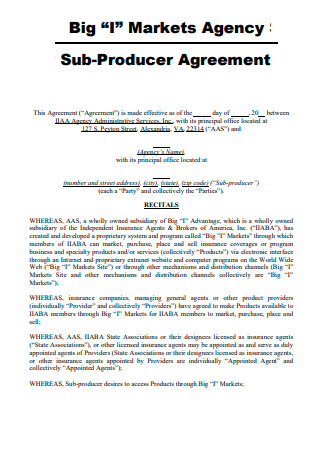
Market Agency Sub-Producer Agreement
download now -
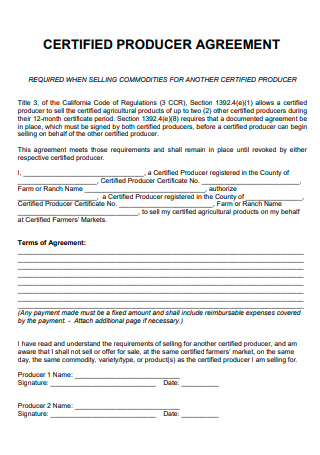
Certified Producer Agreement
download now -

Insurance Services Limited Producer Agreement
download now -

Printable Producer Agreement
download now -
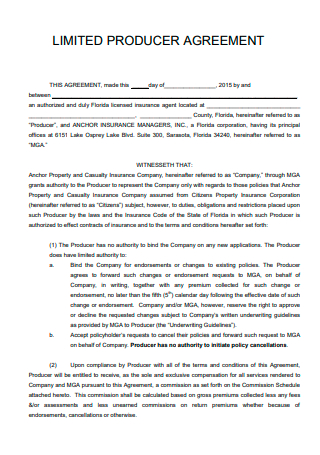
Limited Producer Agreement
download now -
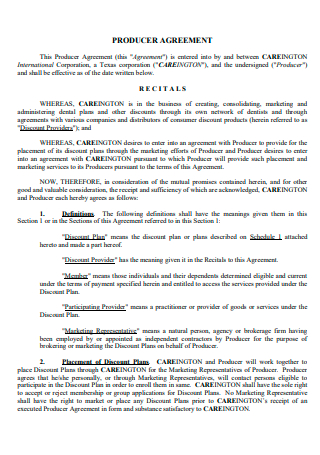
Producer Agreement in PDF
download now -
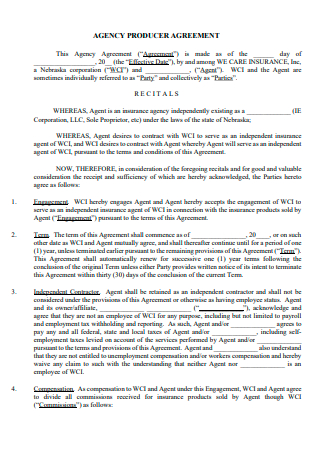
Agency Producer Agreement
download now -
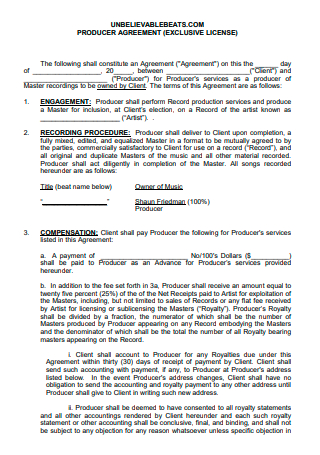
Exclusive License Producer Agreement
download now -
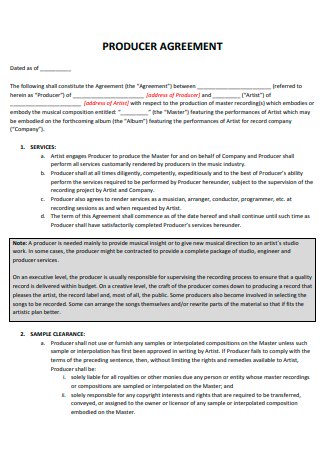
Draft Producer Agreement
download now -
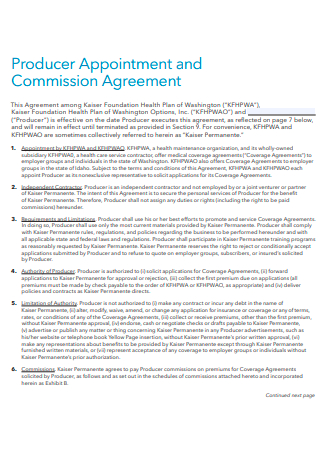
Producer Appointment and Commission Agreement
download now -
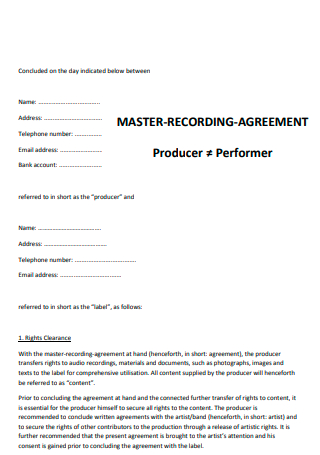
Producer Master Recording Agreement
download now -
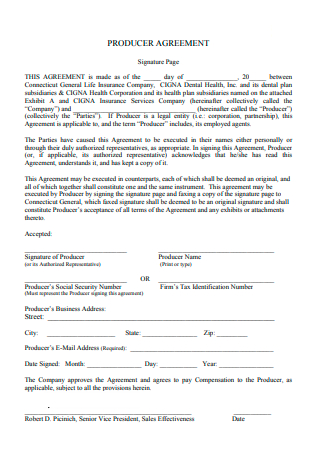
Producer Agreement Signature Page
download now -
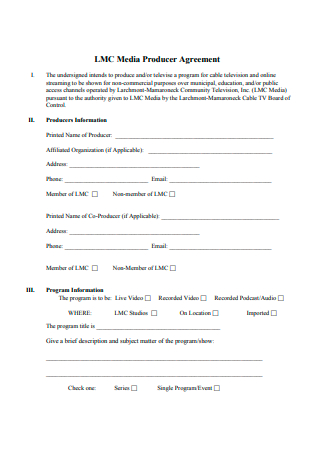
Media Producer Agreement
download now -
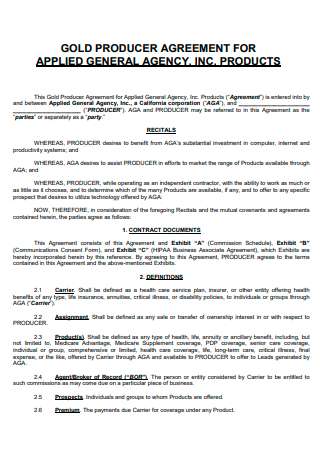
Gold Producer Agreement
download now -
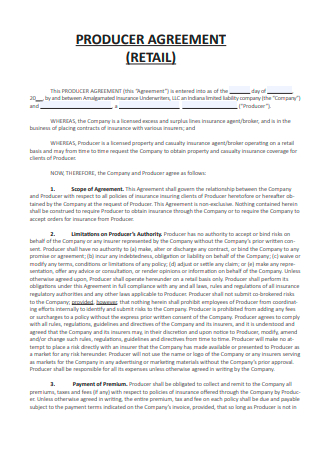
Retail Producer Agreement
download now -
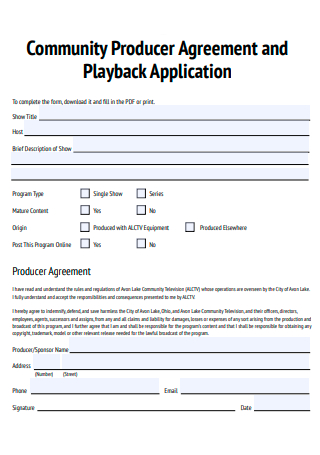
Community Producer Agreement and Application
download now -
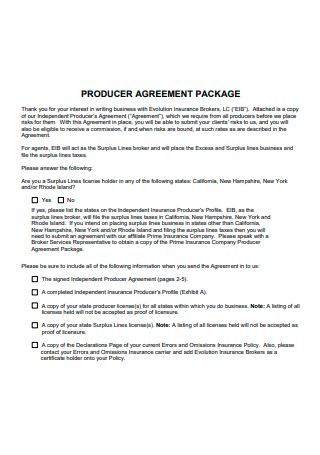
Producer Agreement Package
download now -
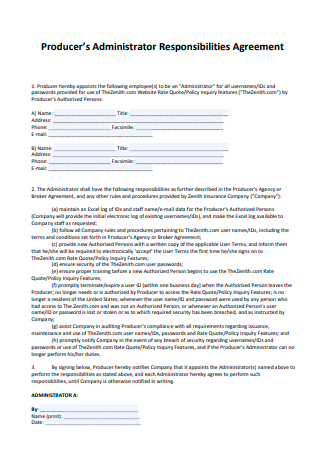
Producers Administrator Responsibilities Agreement
download now -
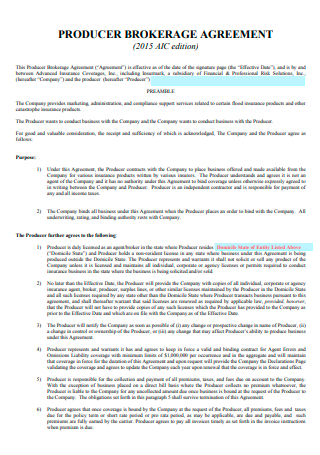
Producer Brokerage Agreement
download now -
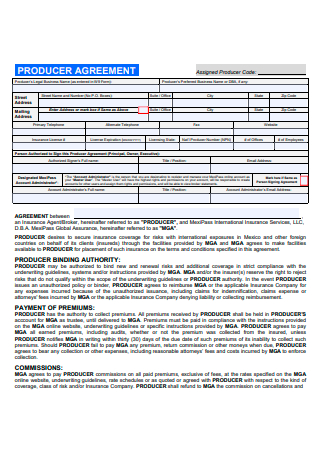
Sample Producer Agreement
download now -
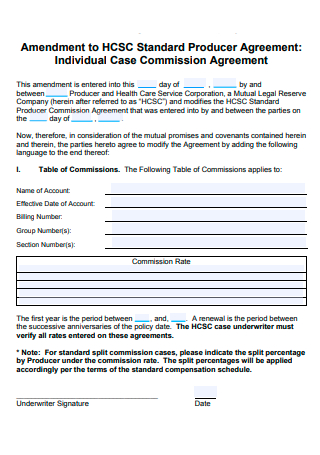
Amendment Producer Agreement
download now -
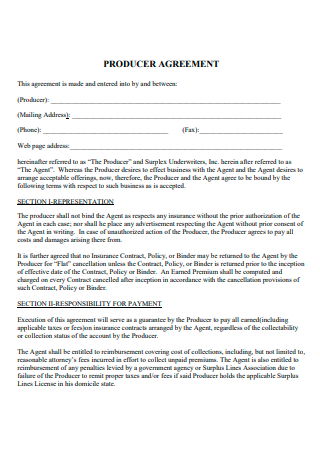
Producer Agreement Format
download now -
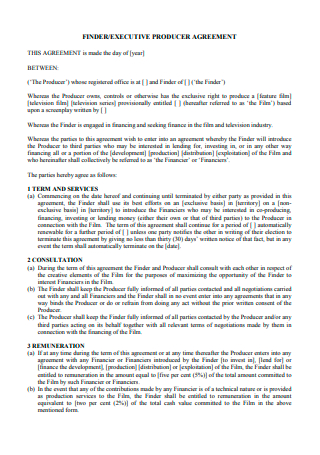
Executive Producer Agreement
download now -
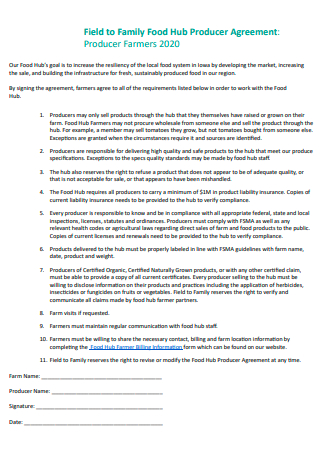
Food Hub Producer Agreement
download now -
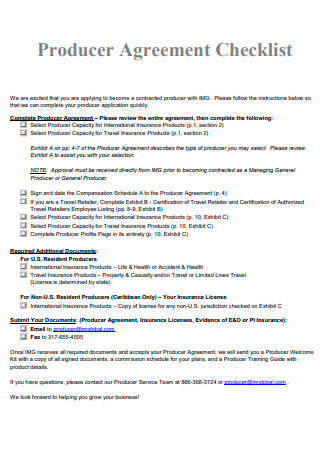
Producer Agreement Checklist
download now -
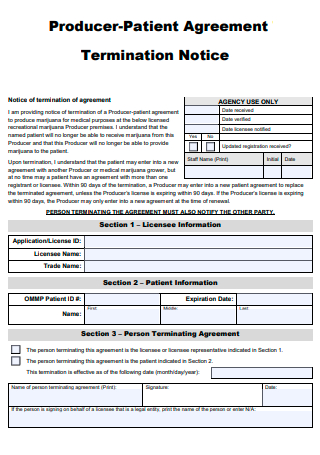
Producer Patient Agreement Termination Notice
download now -
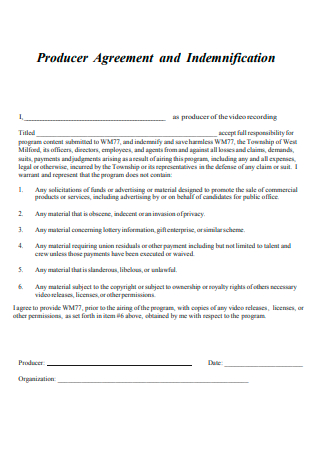
Producer Agreement and Indemnification
download now -
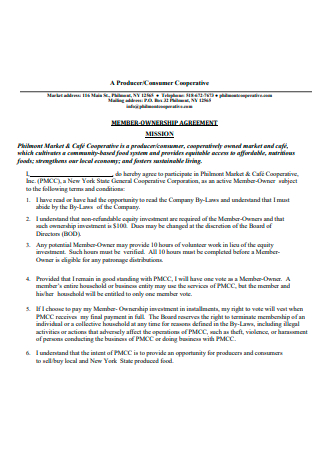
Producer-Consumer Cooperative Member Ownership Agreement
download now -

Producer Agreement For Medicare Products
download now -
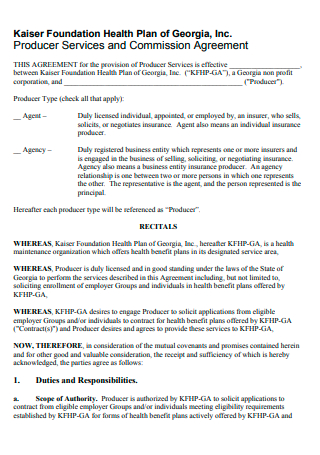
Producer Services and Commission Agreement
download now -
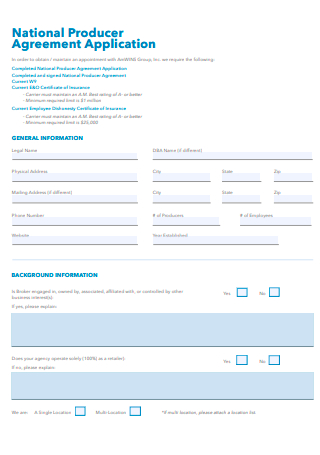
National Producer Agreement Application
download now -
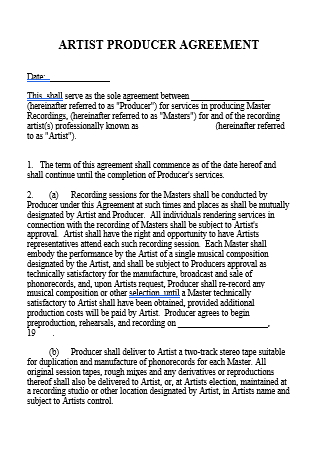
Artist Producer Agreement
download now -
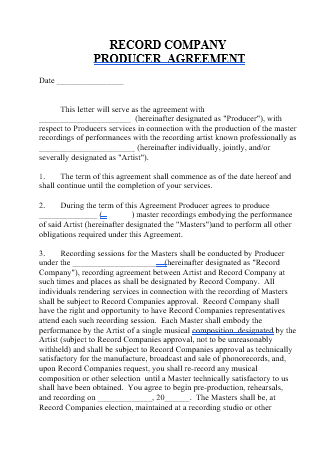
Record Company Producer Agreement
download now -
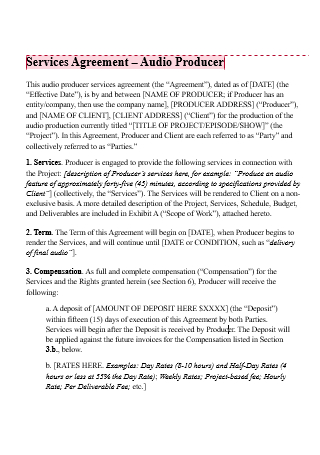
Audio Producer Services Agreement
download now -
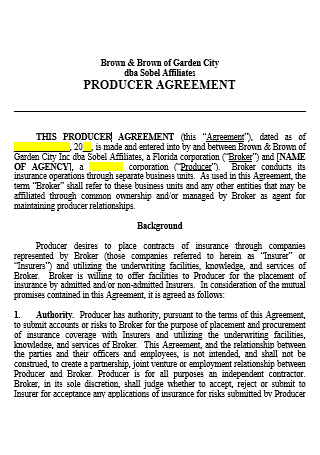
Producer Agreement in DOC
download now
FREE Producer Agreement s to Download
47+ Sample Producer Agreement
What Is a Producer?
What Is a Producer Agreement?
Different Types of Producers
Skills That Make a Producer a Great Hire
How to Write a Producer Agreement
FAQs
What is the difference between executive producer against producer?
How much do producers get signed for?
What is the difference between an agreement against a contract?
What Is a Producer?
A Producer is in charge of discovering and launching a project, as well as organizing funding, employing writers, directors, and other important members of the creative team, and directing all aspects of pre-production, production, and post-production, all the way through to release. It is not rare for a film or television show to have multiple producers. Some producers only have the title in their name because they have given up rights to the story or contributed funding to the picture. Most producers, on the other hand, are present on set, directing production logistics from beginning to end in close collaboration with the director.
What Is a Producer Agreement?
To define producer agreement, it is a legally binding agreement between a producer and their respective clients or customers. It specifies the terms and conditions under which a product will make music, film, or other forms of creative work for its clients. It can be something clients sign at the beginning of each project or something more akin to a monthly retainer. In any event, it’s better if you sign a producer agreement before you start working with anyone so that everyone knows what to expect from their role moving ahead. This document will explicitly state the terms and conditions in the agreement between producer and artist.
Different Types of Producers
When a film’s credits list several different producers, it’s rare to know exactly what each one contributed to the film. Producing entails a variety of responsibilities, and in certain circumstances, one individual wears all of them. However, in most circumstances, the roles are divided and shared among several people, each with their title. Read this curated list to find out more of the most common types producers use to distinguish their roles apart from other similar titles.
Skills That Make a Producer a Great Hire
Take a second look at a resume with a television producer on it the next time you are trying to employ someone for your team. Producing a performance is similar to starting and running a company. A message, a team, content or a service, and excellent execution are all required. Having a producer on staff or as a consultant will benefit any organization. Producers can oversee a department, plan a live event or conference, or create a corporate film. A producer knows how to combine obligations such as managing an on-site video conference, media training, and handling Public Relations with the press if a company needs in-house aid.
How to Write a Producer Agreement
Before you can discuss the duration and various phases of the production process, first and foremost you will need to discuss the contents of the producer management agreement with the producer. Learn how to write one through the steps provided in this article. If you are confused with the layout, you can check out the templates readily available across this site. Since there are various types of agreements, a conventional agreement usually includes the sections listed below.
-
1. Professional Information
For the first step, you will need to state the official name of the company handling the production, whether it is a Film company or a record label, the producer or the reader will need to be aware of who is handling the agreement. Although if you are an independent or as the client, is unaffiliated with any company, their names should be included in this place. You can include in this section any official logo you use.
-
2. Scope of Services
In this section, you should elaborate on the Scope of Work the respective producers will be handling or what kind of actions they will need to provide for the duration of the production. It is best to be specific so that neither party won’t have to exhibit skills or capabilities they don’t want to.
-
3. Term and Termination
In the next step, you need to include a clause on who is responsible if things go wrong. This could be counted as part of the liability protections. Additionally, your terms need to be specific on the responsibilities each party must follow if they do pursue working in the production. Confidentiality and intellectual property ownership should also be specified. The termination aspect focuses on how long the agreement would last and what are the considerations for producers to leave the agreement earlier than the expected date.
-
4. Payment and Late Payment
The last section, it’s all about the division of the payment and the agreement regarding any late payment that could be done. List out the amount the producer will be receiving for fulfilling their role in the production. Such as if there is a fee if the producer will receive late Payment. Otherwise, if the payment is divided, that should also be specified.
FAQs
What is the difference between executive producer against producer?
On a project, the executive producer has a distinct function from the other producers. A producer, on the other hand, could be developing a script with a writer and then reaching out to an executive producer for funding. The executive producer is the highest-ranking member of the team. Even though they collaborate with other types of producers, their responsibilities are distinct. In general, an executive producer isn’t involved in the day-to-day operations of a project, whereas a producer is deeply immersed in those operations. Following the project budget, a producer normally reports to an executive producer.
How much do producers get signed for?
Advances can range from $10,000 to $250,000. They are typically used to pay for future royalties. In a producer agreement, the producer’s advances are sometimes bundled together as an all-in deal that is included in the recording budget, and other times they are distinct from the recording budget. The final range that the producers receive will vary on the role they play in producing the final output. You can view the differences between the music producer agreement and the provided film producer agreement template.
What is the difference between an agreement against a contract?
An agreement is a promise or arrangement made between two or more persons to achieve a common goal. An informal agreement has no legal ramifications. A Contract is a legally binding agreement between two or more people that creates a mutual responsibility. This article provides you with a free producer agreement that you can utilize.
Completing the article will help you to further understand what is necessary to include as you complete the producer services agreement. Make sure that you don’t forget any necessary information so that your production would go smoothly. Without further ado, try writing out that agreement and gain a producer now!
